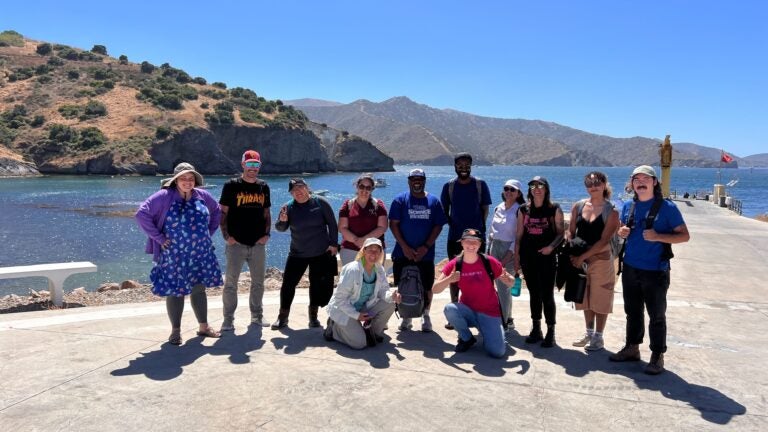
Coast to Classroom – This Year’s Microbiology Teacher Workshop in Catalina Facilitated Hands-On Ocean Literacy
The University of Southern California’s (USC) Joint Educational Project’s STEM Education Programs recently hosted a three-day summer workshop on marine microbiology and coastal deoxygenation, specifically designed for high school educators. This initiative aimed to enhance ocean literacy among high school students from Title I schools by translating advanced marine science research into four classroom-friendly lesson plans. These plans, tailored for biology and environmental science classes, focus on how marine microbes interact with the dissolved oxygen content of seawater, encompassing a range of oceanography topics such as microbial ecology, nutrient cycling, physical ocean dynamics, and climate change.
Executed in collaboration with USC’s Marine and Environmental Biology department, the workshop featured faculty and graduate students who provided expert insights on marine microbes and oceanography. Throughout the workshop, educators were guided through each lesson plan and received classroom sets of materials to facilitate the experiments in their schools. Additionally, educators were introduced to the academic research process at both USC and the Wrigley Institute of Environmental Studies on Catalina Island, California. This workshop is funded by the National Science Foundation.
Day One Highlights: The workshop kicked off with a morning lecture by Dr. Cameron Thrash, followed by a lab tour. In the afternoon, educators explored bacterial ecology through serial dilutions and examined the effects of dissolved oxygen in fresh versus saltwater at varying temperatures. The participating teachers included Anna Murrillo from the Math Science Technology Magnet Academy at Roosevelt High School, Yasmin Martinez Duarte from John H. Liechty Middle School, Jarred Phillips from New Roads School, and Mike Newman from Central High School TRI-C CDS.
Day Two Adventures: The professional development program continued on Catalina Island at USC’s Wrigley Institute for Environmental Studies. Teachers collaborated with researchers to collect baseline marine data, including pH, salinity, and dissolved oxygen levels, using YSI instruments. These measurements provided context for biological components examined in plankton tows, similar to the marine microbes studied in the Thrash lab. The afternoon featured a touch tank tour where educators interacted with local marine fauna and a hyperbaric chamber tour to experience pressure changes. The day was enhanced by the support of an incredible crew and staff, including long-time Catalina Island resident Lorraine Sadler, graduate students Jordan Coehlo, Zack Henning, and Kelsie Campbell, and the Miss Christie boat driver Lucy and education specialist Meghan.
Final Day Recap: On the last day, teachers analyzed the data collected on Catalina Island and observed microbial growth over the two days. They then delved into lessons on plankton and microbe dynamics, including plankton races and tow design. The workshop concluded with discussions on the impacts of temperature and salinity on water stratification.
This immersive experience provided educators with valuable resources and firsthand research experiences, equipping them to inspire the next generation of marine scientists and environmental stewards.




